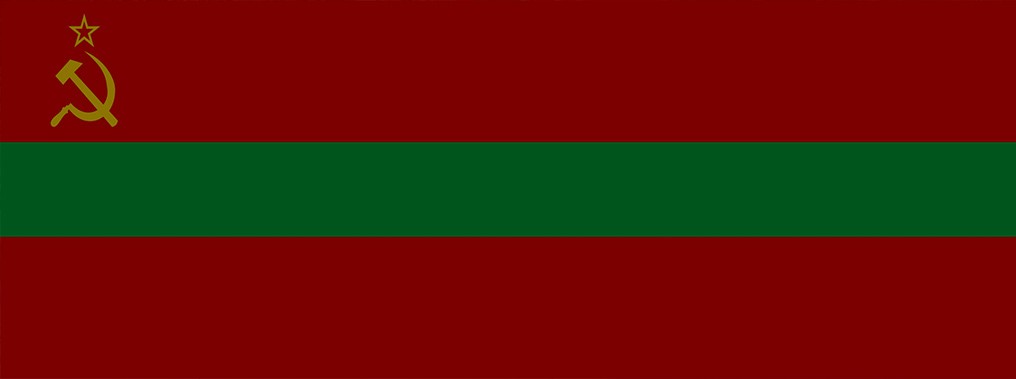
State system
Государственное устройство
The Pridnestrovian Moldavian Republic (PMR) is a sovereign, independent, democratic, rule-of-law state.
The people are the bearer of sovereignty and the sole source of power in the state.
The people exercise power directly, as well as through state and local government bodies. The referendum and free elections shall be the highest direct expression of the people's authority. No one can seize power in the PMR. The seizure or the appropriation of power is a grave crime against the people.
State power is exercised on the basis of a separation of powers into legislative, executive and judiciary branches. Pridnestrovie is a presidential republic.
Constitution
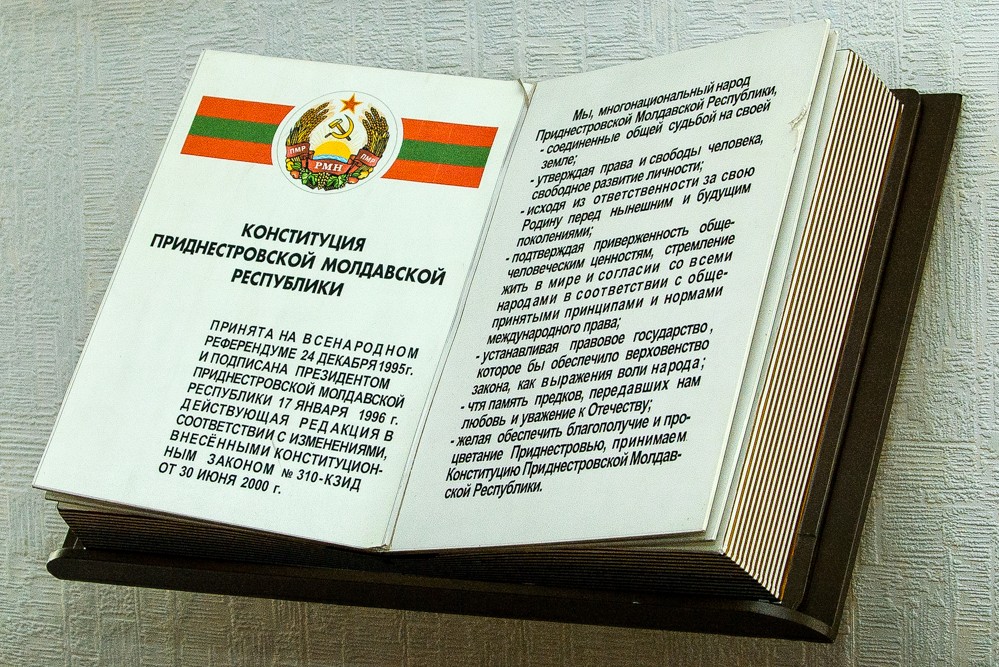
The first Constitution of Pridnestrovie was adopted on 2 September 1991 at the 4th Congress of All-Level Deputies. It proclaimed the country a sovereign and independent state within the USSR.
The new Basic Law was adopted in a nationwide referendum on 24 December 1995 and signed by the Pridnestrovian President on 17 January 1996. In 2011, amendments were made to the Constitution to return the presidential-parliamentary system.
The Constitution of the PMR has the highest legal force and direct effect. The bodies of state power and administration, local self-government, officials, public associations and citizens are obliged to observe the Constitution and laws of the PMR.
President
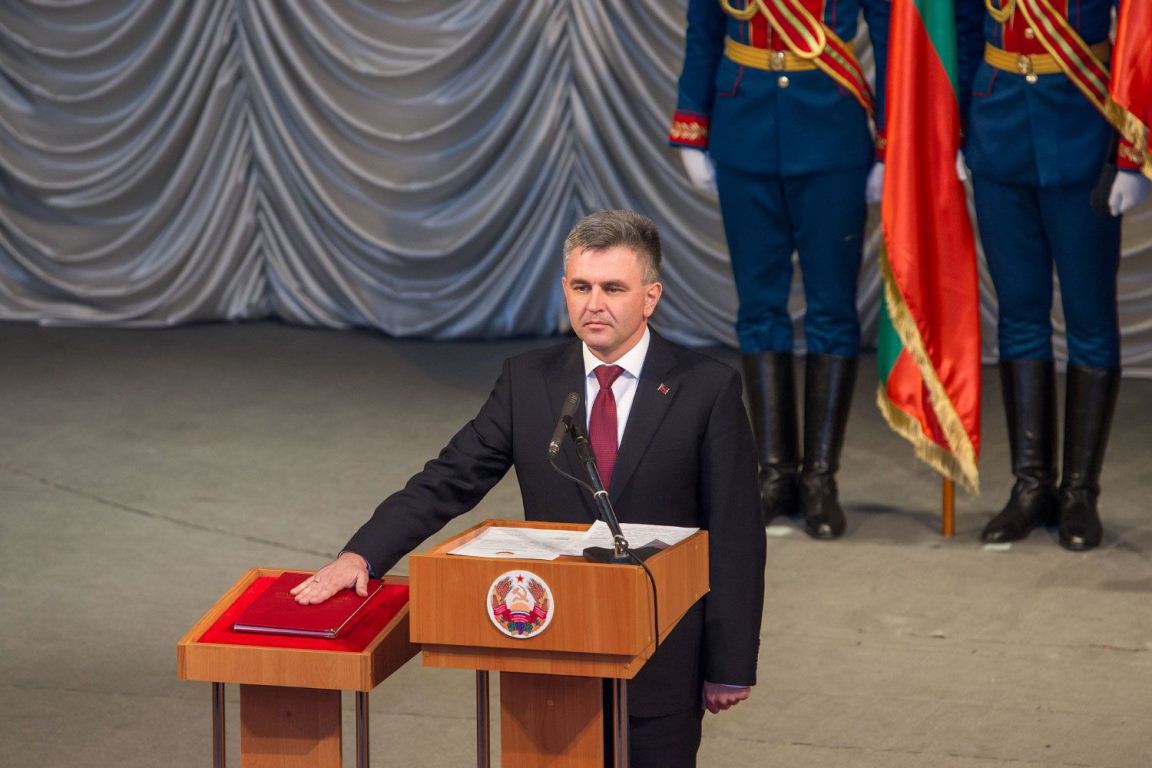
The President of the Pridnestrovian Moldavian Republic is the head of state, the guarantor of the Constitution, human and civil rights and freedoms, the Commander-in-Chief of the Armed Forces.
Vadim Nikolayevich Krasnoselsky is the current President of the PMR (since 12.16.2016).
Powers exercised by the President
The President takes measures to protect the sovereignty of the country, its independence and territorial integrity, ensures the coordination and interaction of all public authorities.
In accordance with the Constitution, the president determines the main lines of the domestic and foreign policy of the state. The president represents the country as the head of state domestically and internationally.
The President of the PMR has the right to pardon, decides questions of citizenship and granting political asylum, establishes state awards, establishes honorary and special titles.
The President of the PMR delivers addresses to the people and the Supreme Council, periodically informs them about the most important issues of the country's domestic and foreign policies, submits annual reports to the parliament on the situation in the republic and proposes such measures as it deems necessary and useful for its consideration.
The President supervises the foreign policy of the country.
How is the President elected?
The election of the President is carried out by citizens of the PMR on the basis of universal, equal and direct suffrage by secret ballot. The term of office of the head of state is 5 years. The President's mandate is renewable only once.
A candidate for office must be a citizen of the PMR who is at least 35 years old and has permanently resided in the country for at least 10 years. He also must be a citizen of the PMR for at least 10 years.
The President of the PMR enjoys immunity.
Supreme Council

The Supreme Council of the Pridnestrovian Moldavian Republic is a representative and sole legislative body of state power. The Supreme Council consists of 43 members (people's deputies).
Functions of the Supreme Council:
- consideration of draft laws;
- interpretation of laws and other legal acts;
- approval of candidates nominated by the President for the post of the chairperson of the Government;
- appointment and dismissal of the chairpersons of courts, the Prosecutor, the head of the Central Bank, the Commissioner for Human Rights;
- evaluation of the work of the Government.
How are MPs elected?
A member of the Supreme Council is elected for a period of 5 years. A citizen of the PMR who has the right to vote, who has reached the age of 25 by the election day, and who has permanently resided in the republic for at least 5 years by the election day can be elected to the Supreme Council.
A member of the Supreme Council cannot be brought to any responsibility for the opinion expressed or the decision made in the course of parliamentary activities. The MP enjoys immunity for the duration of his term of office. He cannot be detained, arrested, searched, except in cases of arrest at the scene of the crime, and subjected to personal search, except when it is provided for by the laws of the PMR in order to ensure the safety of other people.
Deprivation of immunity is considered and sanctioned by the Supreme Council on the proposal of the Prosecutor.
Government
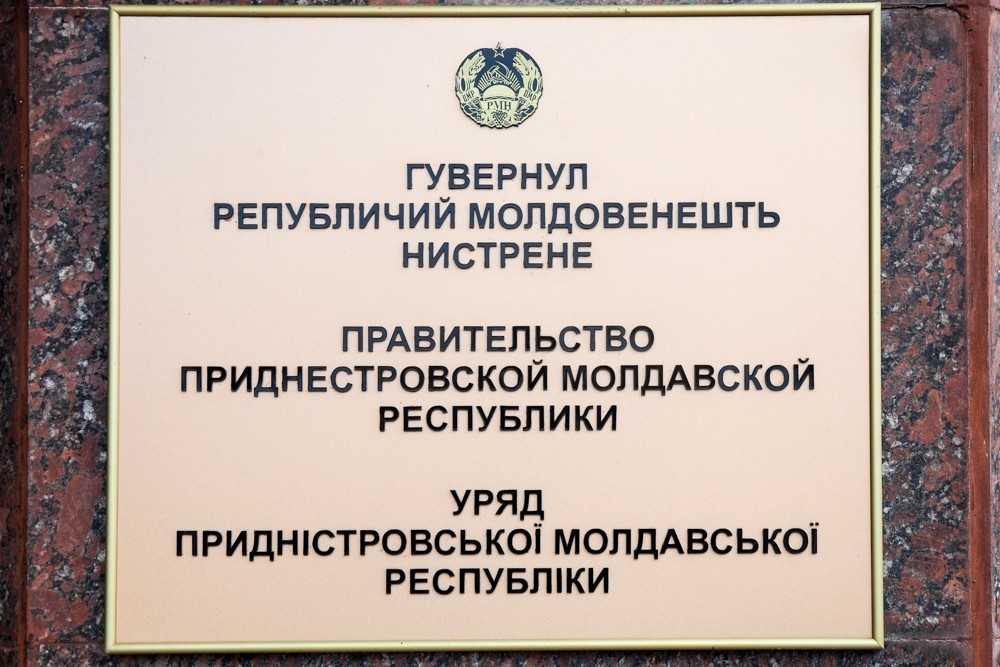
Executive power is exercised by the Government of the PMR. It consists of the chairperson, chair deputies, ministers, heads of state administrations of cities and districts.
Functions of the Governmnet:
- develops and submits to the Supreme Council a draft budget law and ensures its implementation;
- ensures the conduct of a single financial, economic, credit and monetary policy in the PMR;
- supervises state property;
- carries out measures to ensure the country's defence, state security and the implementation of its foreign policy;
- carries out measures to ensure the basics of customs regulation;
- carries out measures to ensure the rule of law, rights and freedoms of citizens, protection of property and public order, crime control;
- submits annual reports to the Supreme Council on the results of its activities.
Judicial power
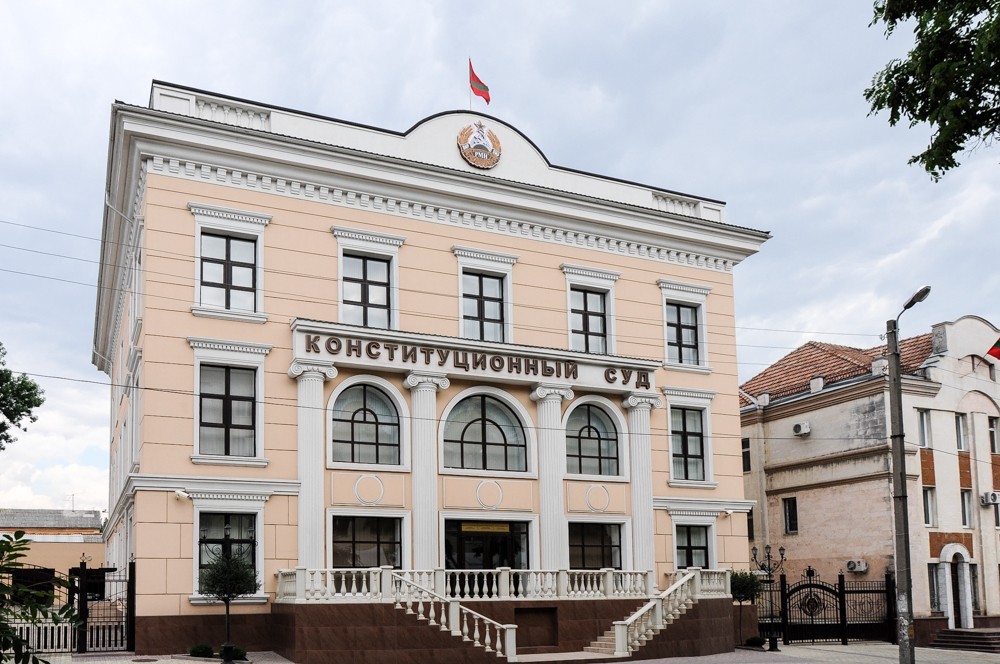
Justice in the PMR is administered only in courts. Judicial power is exercised by courts through constitutional, civil, administrative, criminal and arbitral proceedings.
The body of constitutional control is the Constitutional Court of the PMR. The highest judicial body for civil, criminal, administrative and other cases which can be heard by courts of general jurisdiction is the Supreme Court of the PMR. The highest judicial body for the resolution of economic disputes is the Arbitration Court of the PMR.
Proceedings in all courts are public. The hearing of cases in a closed-door session is allowed only in cases provided for by law. Justice is carried out at an adversary trial and is based on equal rights of the parties.
How are judges appointed?
Judges, with the exception of judges of the Constitutional Court and justices of the peace, are appointed by the President on the proposal of the chairpersons of the Supreme and Arbitration Courts respectively. Judges hold office indefinitely until they reach the age of 65, except for judges who are appointed for the first time, and judges participating in the administration of justice in the Constitutional Court. The first appointment to the position of a judge is for a period of five years.
Judges enjoy immunity.
Local government
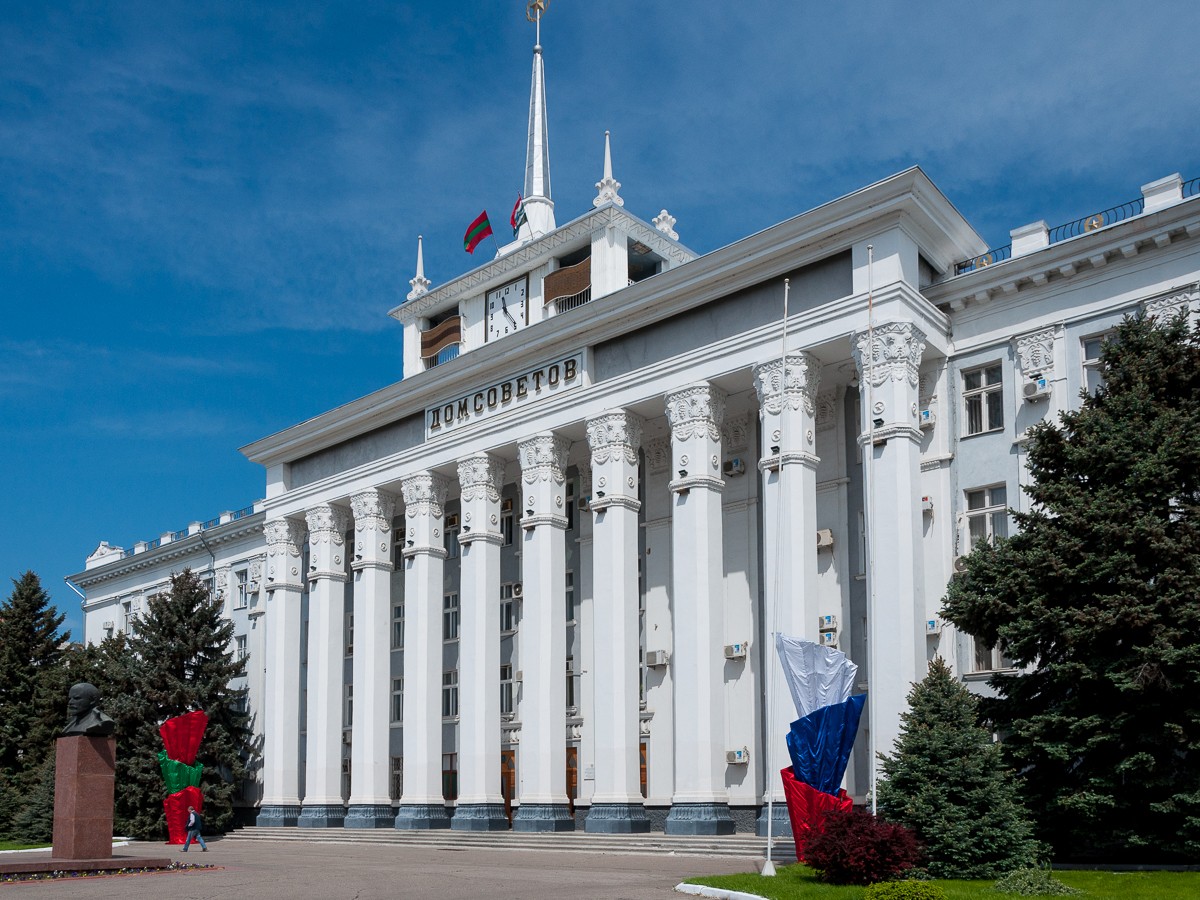
Councils of People's Deputies
Councils of People's Deputies of cities, regions, villages (settlements), which are the country’s administrative-territorial units, are included in a unified system of representative bodies of state power.
Local councillors are elected on the basis of universal, equal and direct suffrage by secret ballot by the population of the relevant administrative-territorial units for a period of 5 years. District councils of People's Deputies are formed to ensure the representation of interests of the population and territorial units that make up the districts.
State administrations
State administrations of cities and districts are included in a unified system of executive bodies of state power.
Heads of state administrations are appointed by the President on the proposal of the head of the Government.
National symbols of the PMR
The Pridnestrovian Moldavian Republic has a state flag, emblem and a national anthem, which are symbols of the country.
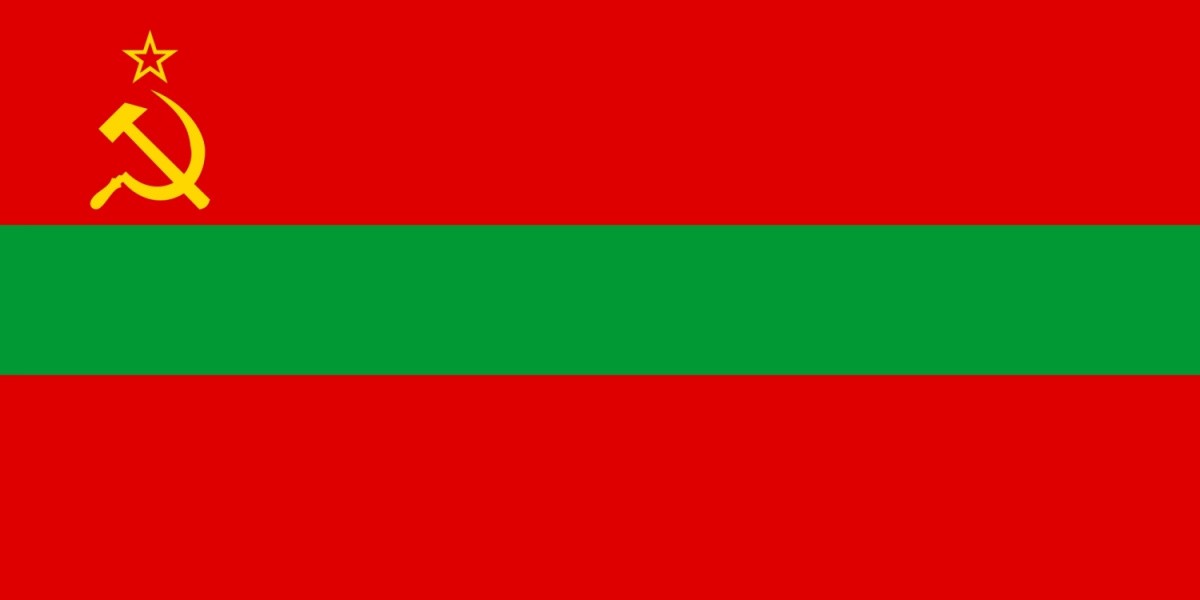
Flag
The national flag of the Pridnestrovian Moldovan Republic is a rectangular double-sided cloth of red colour. In the middle of the flag on each side at full length is a green stripe. In the left corner of the upper part of the red stripe is the main element of the country's national emblem - a hammer and sickle of golden colour with a red five-pointed star framed by a golden band.
Since 2017, the flag of the Russian Federation has been used on a par with the state flag of the PMR.

National emblem
The national emblem of the PMR is an image of a crossed sickle and hammer symbolising the unity of workers and peasants in the rays of the sun rising above the Dniester, framed with a garland of corn and maize ears, fruits, grape bunches and vines and leaves interwoven with a red ribbon with inscriptions in the official languages (Moldovan, Russian and Ukrainian).
Anthem
The national anthem of the PMR is a musical and poetic work based on the music written by B. Aleksandrov and the lyrics by B. Parmenov, N. Bozhko, V. Pischenko translated into the official languages (Moldavian and Ukrainian). The national anthem can be performed in orchestral, choral, orchestral-choral or other vocal and instrumental versions, including by means of sound and video recording, as well as means of television and radio broadcasting.
Languages
There are three official languages in the PMR - Moldavian, Russian and Ukrainian.
Administrative divisions
The capital of the PMR is the city of Tiraspol. Pridnestrovie includes cities - Bendery (with the villages of Varnitsa, Gyska, Protyagailovka), Dubossary, Rybnitsa, Tiraspol; districts - Grigoriopol, Dubossary, Kamenka, Slobodzeya, Rybnitsa.
- Карта


